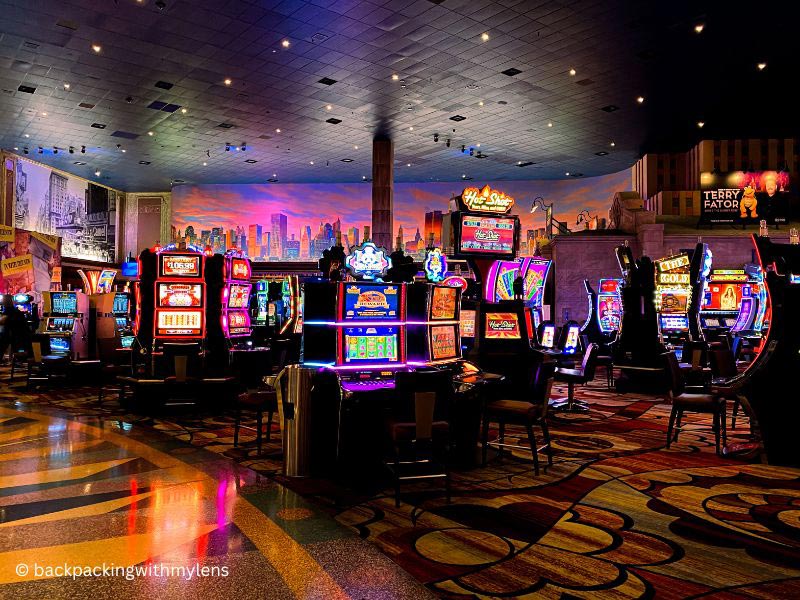In what way Gambling Games Mirror our Humanity's Journey

Gambling games have long been a significant aspect of human culture, providing not just entertainment but a captivating reflection of our dreams, dreams, and anxieties. From the turning reels of a slot machine to the tactical play of poker, these games represent a range of human feelings and events. At their core, casino games are more than a chance to win money; they are a reflection of life itself, where risk and reward converge and luck can change in an moment.
As players convene around tables or sit in front of brightly lit machines, they take part in a ritual that transcends mere betting. These games reflect our instinctive desires for relationships, excitement, and the pursuit of luck. They also disclose deeper truths about human behavior, such as our relationship with chance and the adrenaline of the unknown. In exploring casino games, we reveal not only the nuances of play but also the complex weave of the human story, showcasing our interconnected narratives of hope and reality.
The Mind Behind Gambling
Wagering is deeply rooted in human psychology, appealing to various emotions and wants. The excitement of risk-taking is a core aspect that draws players in, whether it's thrill of spinning a roulette or the anticipation of drawing a winning card in a poker game. This adrenaline is frequently likened to other forms of excitement, as the uncertainty of outcomes elicits a unique psychological response. Gamblers often become captivated by the chance of winning big, leading to an irresistible draw toward gambling games.
Additionally, a crucial component of the psychology behind gambling is the concept of optimism and ambition. Participants often nourish dreams of financial freedom and the opulent lifestyle that can follow winning. This optimism fuels their continued participation in casino games, as it provides a sense of meaning and the conviction that a transformative win could be just one wager away. The story of beating the odds and achieving success resonates with many, strengthening their commitment to play and involve themselves with these games.
Lastly, social aspects play a crucial role in gambling psychology. Gambling venues are designed to promote social interaction, where players gather to share the journey of wins and losses. This shared aspect not only amplifies enjoyment but also influences behavior, as individuals often imitate the actions of others around them. The social validation found in mutual thrill can magnify the emotional experience, making casino games a mirror of not just personal desires but also shared involvement within the gambling community.
## The Dual Nature of Risk and Reward
Gambling games embody the fragile balance between risk and reward that resonates deeply with the human experience. The excitement of placing a bet is often accompanied by a surge of excitement, as gamblers are confronted with the possibility of striking it rich, yet fully aware of the risk to suffer losses. This bipartisan experience reflects a core aspect of life: the paths we choose often come with inherent risks, and the chase for gain can drive us to take chances we might not normally consider. https://luck8b.org/ In this way, casino games reflect real-world choices, enticing players to gamble not just their money, but also their dreams.
The allure of grand jackpots and winnings fuels a feeling of positivity, inspiring gamblers to imagine a more promising future that could emerge from a lucky spin of the roulette or flip of a card. This optimism can compel individuals to engage in more daring actions, pushing them to take greater risks in search of financial gain. However, just as in life, the consequences of these risks can lead to both victory and failure. The stories of both big winners and those who have lost everything at the tables demonstrate the chaotic nature of chance and its consequential impact on our lives.
Ultimately, the interaction of engaging with casino games serves as a strong reminder of the nature of humanity. Every session played is imbued with the tension of risk, as gamblers weigh the gains against the risks. This interaction not only highlights the thrill that comes with betting but also exposes the vulnerabilities that come with the urge for more. As we journey through the challenges of decision-making and results in both the casino and in life, we find that the pursuit of risk and reward shapes our identities and lives in profound ways.
Culture and Isolation in Casino Culture
Casino environment is a special blend of social engagement and individual endeavor, reflecting the tensions of human experience. Gamblers often come together around games, experiencing in the excitement of the action, rejoicing in wins, and commiserating over losses. This communal aspect is vital, as it fosters a sense of community and bonding among diverse groups of people. Regular attendees to gaming establishments may form friendships and develop routines, turning the casino into a second home where they feel linked to a larger community of gamblers.
However, the allure of gambling games can also result to loneliness. As individuals become engrossed in the thrill of gambling, they may isolate from personal relationships or neglect to interact with the world outside the gaming space. For some, the search of a windfall can overshadow real connections, leading to isolation. The situation of being among others yet feeling solitary is not rare, as the attention shifts from shared enjoyment to the individual concerns of each player’s path.
This interplay of community and solitude creates a vivid tapestry that defines casino atmosphere. It showcases the intricacy of social interactions, where happiness and despair exist together. Gambling venues serve as both a sanctuary for social interaction and a stage for individual struggles, illustrating how deeply connected our yearning for connection and the individual quest for fortune can be. In navigating this environment, gamblers confront their own stories—seeking both the rush of the game and the companionship of fellow gamblers, eventually mirroring the broader spectrum of human experience.
